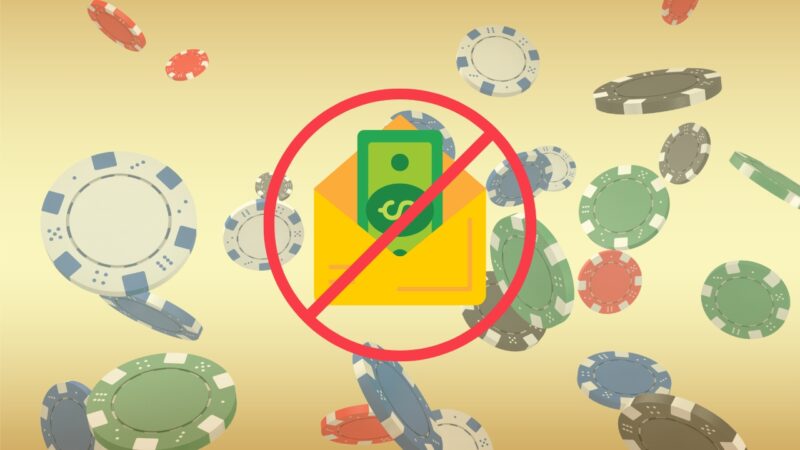Gambling, a pastime as ancient as civilization itself, has evolved significantly over the ages. From the casting of lots in ancient texts to the sophisticated online platforms of today, the fundamental allure of gambling has remained unchanged: the thrill of the unknown outcome.
This phenomenon raises intriguing questions about its ethical dimensions. Is gambling without money ethical? This exploration seeks to dissect the moral considerations of free wagering through a detailed analysis.
Table of Contents
ToggleMoneyless Gambling
At its core, moneyless gambling involves participating in games of chance without the exchange of real money. You can check their thoughts here. This can manifest in various formats, from video games that simulate casino experiences to social media platforms hosting free-to-play betting games.
Participants may engage in these activities for entertainment, skill development, or the social aspect of competing against others. The absence of financial risk is a defining characteristic, but does this absence render the activity ethically neutral?
The Ethical Landscape
The ethical landscape of gambling, with or without money, is complex and multi-faceted. Ethical considerations often revolve around the potential for addiction, the impact on vulnerable populations, and the social consequences of gambling behaviors.
The introduction of moneyless gambling introduces a new layer to this landscape, challenging traditional notions of gambling’s ethical implications.
The Case for Ethical Moneyless Gambling
Proponents of moneyless gambling argue that it eliminates many of the ethical concerns associated with traditional gambling. Without the risk of financial loss, the potential for financial ruin and the exploitation of vulnerable individuals is significantly reduced.
Moneyless gambling can serve as a safe platform for individuals to enjoy the excitement of gambling without the dire consequences that can accompany real money losses. This form of gambling can also foster a sense of community and competition without the pressures and anxieties linked to financial stakes.
Potential Ethical Concerns
However, the ethical evaluation of moneyless gambling is not wholly positive. Critics point out that even in the absence of financial stakes, the risk of addiction remains.
The psychological mechanisms that drive gambling addiction—such as the thrill of the win, the lure of the “near miss,” and the social reinforcement of gambling victories—are not necessarily mitigated by removing financial stakes.
There is concern that moneyless gambling could serve as a gateway to real money gambling, particularly for young people or those predisposed to addictive behaviors.
The Social Responsibility Dimension
The debate over the ethics of moneyless gambling also touches on the broader issue of social responsibility. Game developers and platform providers play a critical role in shaping the environment in which these activities occur.
The design of these games, including the use of in-game purchases and the portrayal of gambling-like mechanics, can influence players’ perceptions and behaviors. The ethical responsibility of these entities is to create experiences that are enjoyable and engaging without encouraging harmful behaviors or exploiting psychological vulnerabilities.
Nurturing Ethical Engagement
Encouraging ethical engagement with moneyless gambling involves a collective effort from developers, players, and society at large. This includes promoting transparency about the odds and mechanics of games, implementing features that allow players to monitor and control their play, and fostering an environment that prioritizes mental health and well-being over addictive engagement.
Education plays a vital role as well, equipping individuals with the knowledge to understand the risks associated with gambling behaviors, even in a moneyless context.
Looking Ahead: The Future of Ethical Gambling
As technology advances and the boundaries of gambling continue to expand, the ethical considerations surrounding moneyless gambling will also evolve. The challenge lies in balancing the enjoyment and social benefits of these activities with the need to protect individuals from potential harm.
When you truly understand the ethical landscape and commit to responsible practices, it is possible to navigate this delicate balance and create a space where gambling, even without money, can be enjoyed in a manner that is both ethical and fulfilling.
Ethical Nuances in Digital Age Gambling
The digital age has transformed the face of gambling, introducing platforms that offer the excitement of betting without the traditional financial stakes. These platforms, while eliminating the financial hazards, introduce a new spectrum of ethical considerations.
The digital realm’s anonymity and ease of access can amplify both the positive and negative aspects of gambling. It becomes essential to scrutinize how these platforms manage the delicate balance between providing entertainment and preventing the digital equivalent of gambling-related harm.
The Psychological Perspective
Exploring the psychological implications of moneyless gambling unveils a complex web of factors that influence an individual’s engagement with these activities. The absence of monetary loss does not negate the psychological highs and lows associated with wins and losses within the game.
The emotional investment in the outcomes of these games can mirror that of traditional gambling, raising questions about the psychological impacts and ethical considerations of engaging in such activities without the direct consequence of financial loss.
The Role of Regulation and Oversight
The question of regulation and oversight emerges as a pivotal aspect of the ethical debate surrounding moneyless gambling. Without the exchange of real money, these activities often fall into a regulatory gray area.
This absence of oversight raises concerns about the potential for exploitation, particularly in terms of data privacy, in-game purchases, and the targeting of vulnerable populations. Ethical engagement in moneyless gambling necessitates a framework that considers not only the content of these games but also the mechanisms through which they are accessed and the protections in place for players.
Final Words
The question of whether gambling without money is ethical does not have a straightforward answer. The ethical implications of moneyless gambling are multifaceted, encompassing considerations of addiction, social impact, and the responsibilities of those who create and engage with these platforms.
By addressing these concerns thoughtfully and proactively, it is achievable to cultivate an environment where the joy of gambling can coexist with a commitment to ethical principles and social responsibility. As we move forward, the ongoing dialogue around these issues will be critical in shaping the future of gambling, ensuring that it remains a source of entertainment that aligns with our shared values and ethical standards.





















